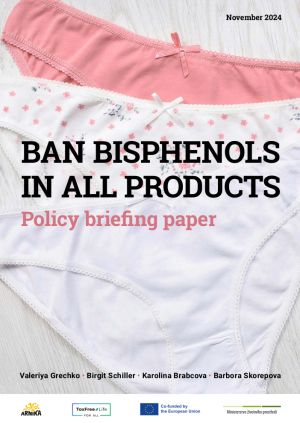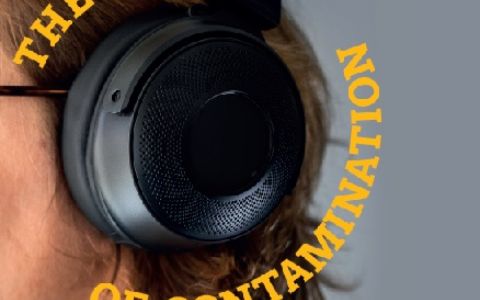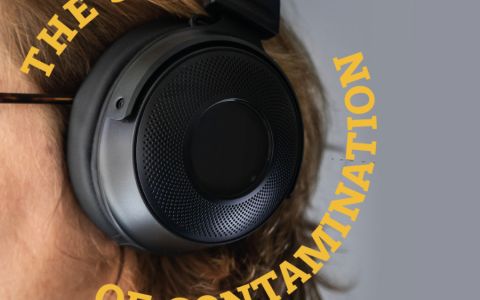This policy paper explores bisphenols' environmental and health risks, explicitly focusing on their use in textiles.
The laboratory test initiated by consumer associations from Hungary (TVE), Austria (VKI), Slovenia (ZPS), and Czechia and Slovakia (dTest), as well as Arnika revealed that approximately 33% of tested samples contained detectable levels of bisphenols, with 10% of samples exceeding the safety thresholds set by authorities. Underwear made from synthetic fibers, such as polyamide and polyester, had the highest concentrations of bisphenols. However, the tests showed that alternatives are available as several products made of synthetic fiber were bisphenol-free.
Our testing found Women’s underwear to be at the highest risk, with 50% of women's products containing bisphenols and 17% containing high levels of bisphenols of concern.
Given these findings, the policy paper calls for an EU-wide ban on bisphenols and their derivatives with endocrine, reprotoxic, or sensitizing properties in textiles by 2029, greater transparency through the Digital Product Passport, and enhanced regulations for ecolabel certifications.








